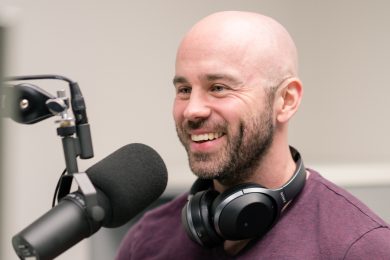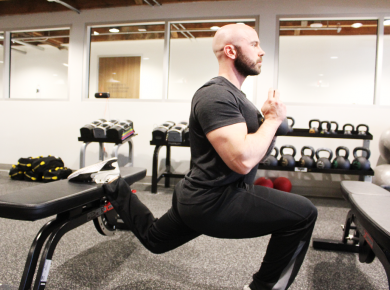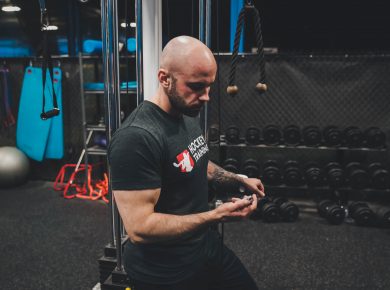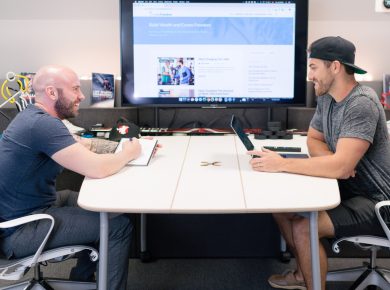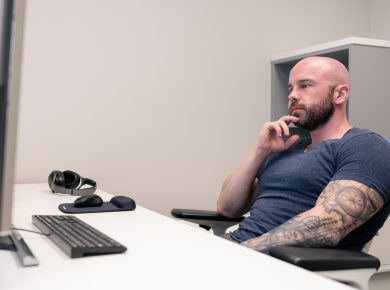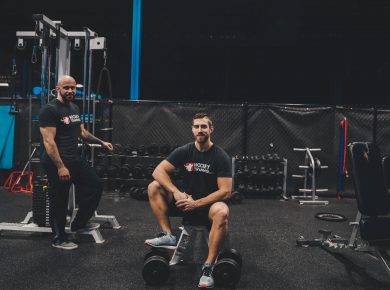Let me tell you a secret…
I absolutely hated public speaking as I was growing up.
In school there would always be some sort of project that you had to present to the class, or, I can also remember on many occasions needing to read my essay that I wrote in front of the class or else I would be docked a lot of marks.
I know what you’re thinking,
Dan, you do seminars and lectures in front of people all the time! There’s no way you ever had an issue in this department of your life?
Trust me.
I would get super nervous (sometimes to the point where I’d try to hide that I was shaking a bit) and always wished somehow the teacher would forget to ask me to do it.
Public speaking was my least favorite thing to do in the world, funny how things turn out isn’t it?
Now I travel the world speaking, and being on social media in front of tens of thousands of people is a form of public speaking all by itself.
How Did I Do It?
Luckily, public speaking isn’t a gift that people are just born with.
Instead, public speaking is a skill, and just like any other skill in this world; practice makes perfect.
I’ll admit, when I first began giving lectures I was a pretty bad speaker — I was also pretty bad on camera as well in my earlier career on social media and YouTube.
But with repetition and continuous consistency, I was able to turn things around.
I want to give you the best tips for public speaking that I have learned through sheer experience and repetition (I never took any public speaking course or anything like that along the way).
This is what I can tell you I know because I’m speaking right from the heart with this one and it’s never a curriculum I ever went through. Let’s get into it.
The Top Seven Tips For Public Speaking
- Engage the entire audience with your movement. One of the quickest ways to determine if someone is an amateur public speaker is if they stand in one spot for the entire talk.
Never do this.
You should be walking around from one end of the stage to the next, engaging the people on both sides of you and straight down the pipe.
Don’t pace back and forth like a madman, but, do your best to be aware that there are people who need to be engaged all around you and not just in front of you. - “What’s in it for you?” — this is a question you should always answer in the beginning of all of your lectures so you can keep your audiences attention the entire way through.
Sometimes your audience will drift their attention away from you if your talk has a general beginning. But, if you tell them on the first or second slide that:
“By the end of this lecture you will know EXACTLY how to design post-workout fat loss finishers” — the audience now knows what to expect and will be attentive because they know they are going to leave with some very valuable information. - Practice, practice, practice. If you have never rehearsed your talk before and you’re not an experienced public speaker, why are you surprised when your talk turns out to be a disaster?
I rehearse my lectures while I make meals, while I drive, and even while I shower.
Of course I do this a little less now since I’m a very experienced speaker, but back in my early days I would do a lecture up to ten times at home before I ever did it in front of anyone else.
I would keep it super simple, all I would do is rehearse it at home and time myself to make sure I was falling within the correct time specifications.
Not surprisingly, the more times you rehearse it the more comfortable you feel and the better you perform.
Not to mention, a benefit of this I always found was that sometimes I would be able to think of jokes that would have not otherwise been in there if I only rehearsed it once (or not at all).
I try to inject some humor into my presentations and once you have the content down, rehearsing it allows you the opportunity to find the right spots to hit em’ with a one liner.
Lastly, the most important component of public speaking is confidence and you will become immensely more confident the more and more times you practice your lecture at home. - Keep your slides simple. To avoid staring at the screen instead of your audience (which is a fatal mistake), try to use your slides as prompts for things you already know very well.
Your slide could be a picture plus one sentence, but, you know that slide is a trigger for an entire rant you already had prepared (and rehearsed) ahead of time.
You are infinitely more charismatic when you’re looking at your audience than when you’re looking at your own slides.
You want your audience looking at you, not your slides.
Especially if you have a lot of text on your slides, people will try to read them instead of intently listen to you. When this happens, the “energy” from your presentation is lost. - Know your audience. Now more than ever people are outrageously sensitive about even the simplest of topics.
If you’re anything like me, you have a twisted sense of humor and sometimes you say things for the sake of getting a laugh that are insulting and/or offensive to certain people in the audience even though you don’t actually mean it.
Always ensure the content, body language, tone, and attire you choose to wear is appropriate for the audience. - Learn from your mistakes. After every presentation you do, you should schedule in a reflection period shortly after so you can think about what worked and what didn’t.
I’ve had more than a few talks that I would consider “clunky”
Meaning, the content was good but the delivery wasn’t very entertaining or compelling.
People enjoy it, but you don’t “wow” them with a clunky presentation.
You want to wow people every time and to do this you need to evaluate where you screwed up and how you could do it better next time.
Don’t wait too long to do this reflection period, do it while it’s still fresh in your mind and write down both your successes and failures. - Have fun! Listen, if you look bored than your audience is going to think you’re bored.
And if your audience thinks you’re bored than they will also be bored, or, they will think that you don’t respect them.
I mean after all, if you’re bored by a topic then why should we even listen?
Avoid this by trying to create a lecture that you yourself would enjoy.
Before you even say your first word you should have a big smile on your face and you want to sincerely thank everyone for being there today so that you could discuss that passionate topic of yours.
Final Thoughts
I don’t consider myself a public speaking expert, but I’ve recorded hundreds of videos, have done dozens of webinars and seminars, and get paid to travel the world and speak at different locations (and on one occasion spoke in front of a crowd of over a thousand people).
At this point in time, I have enough experience in the game to help you out and I hope I did that with today’s article.
If you would like more help to become a successful online health coach, check out all the courses we have here at Create Freedom and don’t forget to watch this lecture I did in Sydney, Australia if you want more public speaking tips (don’t just listen to what I say, but watch what I do).
